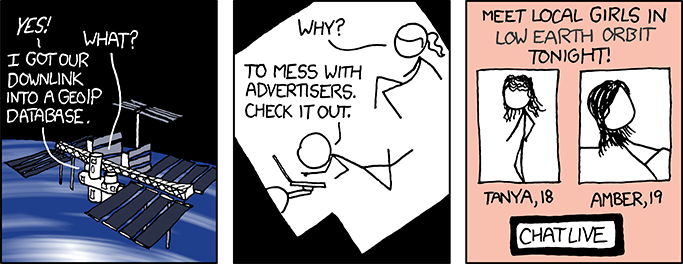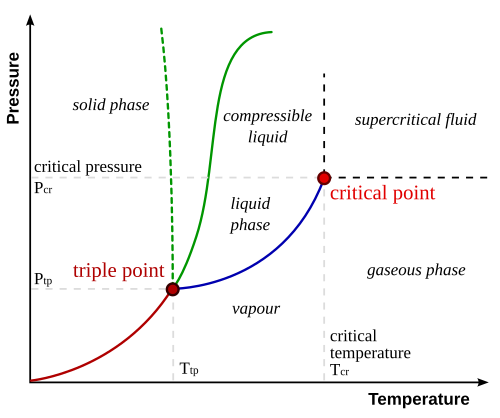Page 1 of 1
Spase dust ads to earths mass
Posted: Fri Jul 13, 2012 12:15 pm
by THX1138
Just wondering / I’ve read that the earth gains around 1000 tons a year to its mass from space dust and so it stands to reason that Jupiter being much larger than earth attracts much, much more space dust. Thereby it should also stand to reason that since this has been going on for as long as Jupiter has been there, 4 billion years? It must have a core or a surface area of substantial size in there somewhere. So why would it be called a gas giant, it can’t be all gas. Moreover if one wants to call it a gas giant; when it obviously cannot possibly be just a bunch of gas then it should be fair to say that the sun is a gas giant as well.

Space Ads
Posted: Fri Jul 13, 2012 1:11 pm
by Sam
Re: Spase dust ads to earths mass
Posted: Fri Jul 13, 2012 1:43 pm
by Chris Peterson
THX1138 wrote:Just wondering / I’ve read that the earth gains around 1000 tons a year to its mass from space dust and so it stands to reason that Jupiter being much larger than earth attracts much, much more space dust. Thereby it should also stand to reason that since this has been going on for as long as Jupiter has been there, 4 billion years? It must have a core or a surface area of substantial size in there somewhere. So why would it be called a gas giant, it can’t be all gas. Moreover if one wants to call it a gas giant; when it obviously cannot possibly be just a bunch of gas then it should be fair to say that the sun is a gas giant as well. :?
Jupiter is believed to have a rocky core. But it is primarily material that was present from the beginning. All the dust and debris that has fallen into Jupiter over the last few billion years hasn't significantly increased its mass or altered its composition.
"Gas giant" refers to planets that are substantially composed of gas, not entirely. All gas giants have some sort of solid core.
Re: Spase dust ads to earths mass
Posted: Fri Jul 13, 2012 2:41 pm
by neufer
Chris Peterson wrote:
Jupiter is believed to have a rocky core. But it is primarily material that was present from the beginning. All the dust and debris that has fallen into Jupiter over the last few billion years hasn't significantly increased its mass or altered its composition.
"Gas giant" refers to planets that are substantially composed of gas, not entirely. All gas giants have some sort of solid core.
- "Gas giant" refers to planets that are substantially composed of "supercritical fluid," not entirely.
http://en.wikipedia.org/wiki/Gas_giant wrote:
<<A gas giant (sometimes also known as a jovian planet after the planet Jupiter, or giant planet) is a large planet that is not primarily composed of rock or other solid matter. There are four gas giants in the Solar System: Jupiter, Saturn, Uranus, and Neptune. Many extrasolar gas giants have been identified orbiting other stars.
The term gas giant was coined in 1952 by the science fiction writer James Blish. Arguably it is something of a misnomer, since throughout most of the volume of these planets all the components (other than solid materials in the core) are above the critical point and therefore there is no distinction between liquids and gases.
Fluid planet would be a more accurate term. Jupiter is an exceptional case, having
metallic hydrogen near the center, but much of its volume is hydrogen, helium and traces of other gases above their critical points. The observable atmospheres of any of these planets (at less than unit optical depth) are quite thin compared to the planetary radii, only extending perhaps one percent of the way to the center.
The rather misleading term has caught on because planetary scientists typically use
"rock", "gas", and "ice" as shorthands for classes of elements and compounds commonly found as planetary constituents, irrespective of what phase the matter may appear in. In the outer solar system, hydrogen and helium are referred to as "gases"; water, methane, and ammonia as "ices"; and silicates and metals as "rock." When deep planetary interiors are considered, it may not be far off to say that, by "ice" astronomers mean oxygen and carbon, by "rock" they mean silicon, and by "gas" they mean hydrogen and helium.
The alternative term jovian planet refers to the Roman god Jupiter—the genitive form of which is Jovis, hence Jovian—and was intended to indicate that all of these planets were similar to Jupiter. However, the many ways in which Uranus and Neptune differ from Jupiter and Saturn have led some to use the term only for the planets similar to the latter two.
With this terminology in mind, some astronomers are starting to refer to Uranus and Neptune as "ice giants" to indicate the apparent predominance of the "ices" (in liquid form) in their interior composition.>>
Re: Spase dust ads to earths mass
Posted: Fri Jul 13, 2012 3:27 pm
by Chris Peterson
neufer wrote: http://en.wikipedia.org/wiki/Gas_giant wrote:
The rather misleading term has caught on because planetary scientists typically use "rock", "gas", and "ice" as shorthands for classes of elements and compounds commonly found as planetary constituents, irrespective of what phase the matter may appear in.
Indeed, and such shorthands are useful- just as "planet" itself is usually used that way.
Re: Spase dust ads to earths mass
Posted: Fri Jul 13, 2012 3:42 pm
by neufer
Chris Peterson wrote:neufer wrote: http://en.wikipedia.org/wiki/Gas_giant wrote:
The rather misleading term has caught on because planetary scientists typically use "rock", "gas", and "ice" as shorthands for classes of elements and compounds commonly found as planetary constituents, irrespective of what phase the matter may appear in.
Indeed, and such shorthands are useful- just as "planet" itself is usually used that way.
.
O dear, what phase the matter be?
Dear, dear, what phase the matter be?
O dear, what phase the matter be?
Jupiter's compressed by its air.
http://en.wikipedia.org/wiki/Planet wrote:
<<A planet (from Ancient Greek αστήρ πλανήτης (astēr planētēs), meaning "wandering star") is a celestial body orbiting a star or stellar remnant that is massive enough to be rounded by its own gravity, is not massive enough to cause thermonuclear fusion, and has cleared its neighbouring region of planetesimals.>>
Re: Spase dust ads to earths mass
Posted: Fri Jul 13, 2012 8:13 pm
by Ann
Hey, you've put on weight again!!!
Ann
Re: Spase dust ads to earths mass
Posted: Fri Jul 13, 2012 10:07 pm
by Chris Peterson
Ann wrote:Hey, you've put on weight again!!!
Are you talking to
Mother Earth? Not the sort of comment most ladies take very well.
Re: Spase dust ads to earths mass
Posted: Sat Jul 14, 2012 10:18 am
by THX1138
Thanks everyone, you have explained the matter perfectly. Looking up metallic hydrogen now, I’ve never heard of anything like that even existing so I can’t wait to try / I mean get a shot at trying to understand how that can happen to hydrogen.
Good day all



